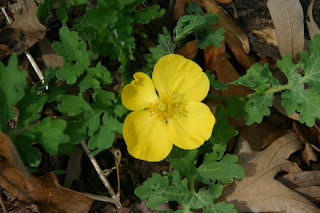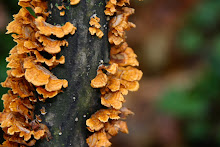
I have something wrong with me when it comes to math. I can’t do it, for one thing. Present me with a mathematical problem requiring a solution and I get vertigo and can’t breathe. Vertigo at first, and then a buzzing arises in my brain, a mental tinnitus in the decibel range of, say, a jet at takeoff. And then – assuming that I’m still conscious – I give up. I give up and slump into a shamed stupor, craving with all my being the chance to read a poem or anything with letters instead of numbers so my sense of self-worth and dignity can be reasserted and restored.
It has always been this way with me.
My mother tells me that she would try to help me with my math homework when I was in elementary school, only to have both of us crying and near despair.

Inexplicably, when I was in high school, I wanted to be an astrophysicist. A friend of mine at the time was much more realistic about his abilities and chances in life, so he planned to become an astronaut. I bought twenty and thirty year old textbooks, their gray covers grubby from generations of student hands, from a library sale and actually spent some Friday and Saturday nights – teenager weekends that I will never get back – trying to teach myself astrophysics. It ended in tears and despair.

I’m thinking about this because walking through the woods these past couple of weeks has made me start thinking about the Second Law of Thermodynamics, and I am in no way capable of discussing any laws of physics with any pretense of authority.
But ignorance has never stopped me – or most either people, for that matter – from talking about stuff. So here goes:
But before I launch into my physics lesson, I want to talk about something I know slightly less about: Pre-Socratic Greek Philosophy. According to Democritus, “Actions always planned are never completed,” and that, along with the principle of entropy, seems like a good, if sideways, way to describe the past two walks in the woods.

A watched tree in early spring never leafs, and I have been impatient since the first day of spring for the empty tree limbs to grow green, as if every tree in the woods was hesitating only for the last second of the last degree that brings the uprighting earth’s equator in line with the center of the sun. And then the second day of spring came – and the third and fourth – and nothing new had happened and the woods began to feel like a track and field meet where for days after the starter’s gun has fired the listless runners merely adjust their shoes and run in place and stretch, and from time to time, in the middle of the track’s grassy oval, some shot putter suddenly hurls a iron ball that sputters in a low arch and lands with a muffled thud.

But that flimsy shot put analogy does an injustice to the red buckeyes whose spiky blossoms seem even more beautiful for their charitable willingness to bloom so early in the season, and to the skinny, understated pawpaw trees with their tiny wine-colored flowers.
Still, with the exception of the red buckeyes and the pawpaws, I found myself looking down, down from the empty limbs and lower than the brown and gray landscape at eyelevel and instead trace the progress of spring on the ground: among wild and wood violets, and lavender pools of jacob’s ladder and yellow swaths of wood poppy. Trillium and wild geranium.

And here I was, all set to dive off the steep cliffs of physics and talk about the Second Law of Thermodynamics, about entropy, but now that the time has come, I’ve decided to swim instead, dogpaddle really, into the placid cove of poetry.
Wallace Stevens was right when he wrote, “Death is the mother of beauty.” Imagine a world in which all the flowers that will bloom, bloom at once and year round. How often would we notice them? Probably even less that we notice the stars, constant even as they steadily wheel through the seasons.

Even the green leaves that we all love in the spring will be unnoticed a month from now – and by July, I would feel like a fool – and would probably be viewed as someone to avoid eye contact with – if I took to stopping strangers walking in the park mid-summer to point out how green everything is.
My ideas, my plans for how the woods would look in too early spring, were thwarted, and the woods’ return to visible life progressed at its own pace, indifferent to my wanting everything green right now. Democritus also stated, “The world is change; life is opinion.” And the violets and poppies and all the other wildflowers hovering low to the ground have been beautiful this spring.

And now, three weeks into spring, every living thing in the woods is leafed.
Walking through the woods these last few weeks, I have realized that it doesn’t matter what I want the woods to look like, what flowers I want to see in bloom right now. And though it is not what Democritus had in mind, I have realized that my plans for the woods, no matter how elaborate or perfect, will never be completed. The woods has its own plans, or rather its own rhythm, its own pulses, and there is wisdom in leaving behind all my notions and expectations of how things ought to be, somewhere at the forest’s edge, and wandering along its trails open and alive to what the forest can teach me about abandoning my opinions, about opening myself to its changes.
 Words by Stephen BlackPhotos by Jenn Allmon
Words by Stephen BlackPhotos by Jenn AllmonTo see more photos from April 4th,
click here. And for April 11th,
click here.






























